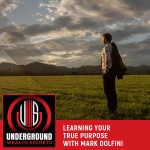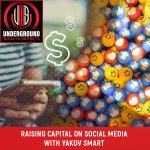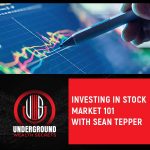Investing In Stock Market 101 With Sean Tepper
- Post author By rldiamond
- Post date February 3, 2023
- No Comments on Investing In Stock Market 101 With Sean Tepper
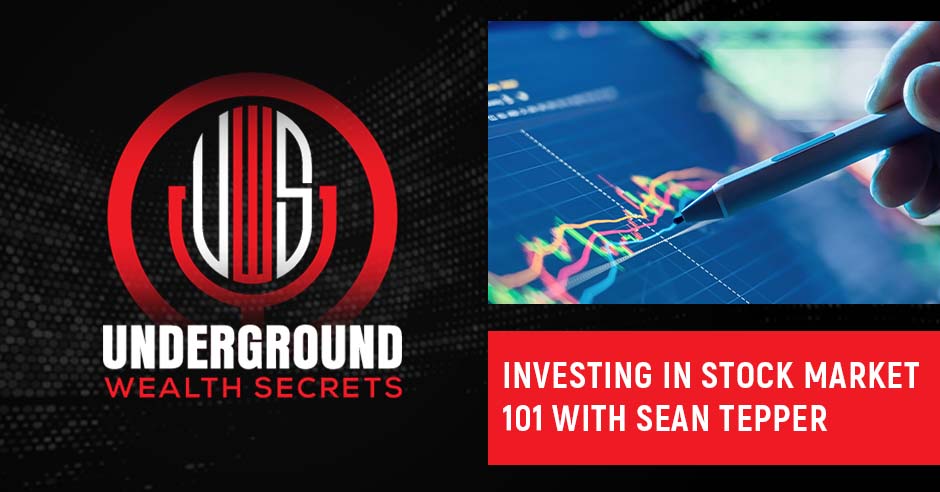
Today, we will unwrap another secret on wealth building! If the stock market is a prospect for you to invest. Then this is the episode for you! Sean Tepper, the CEO of Tykr, discusses how you can navigate through investing in the stock market. By applying the tools, equations, and key takeaways, Sean starts beating the stock market. His software has great value in investing in the stock market. Find out more about his software and how it works by tuning in to this episode.
—
Watch the episode here
Listen to the podcast here
Investing In Stock Market 101 With Sean Tepper
I am very excited to be meeting with Sean Tepper. Sean, welcome to the show. I’m so excited to have you here. Would you mind telling our readers a little bit about yourself?
First off, thanks for the invite. I’m glad to be here. I’ll give the readers a little background here and try to keep it short, but it’ll give a little context into what we’ll talk about a little bit which is the stock market. I am in software engineering and project management. I built an agency in the late 2000s. It was through the recession so it didn’t make any money, but I learned a lot about business. The trials and tribulations of my past were a good experience because I got to learn a lot about different business models, whether it’s a manufacturing company, software service, eCommerce, hair salons, restaurants, and the list goes on. I got to understand what’s the type of business I want to work on.
We did go through a little growth phase in 2009 and 2010. We went through a merger. It wasn’t an event where they wrote me a check and like, “Here’s $1 million and you can ride off to the sunset.” It was none of that. An agency is a service business. In that case, you’re not going to sell it for anything. Fortunately, I had all debts and liabilities wiped out from the business. It’s like I had a choice to choose a new path.
I decided that I wanted to create a SaaS business or Software As A Service, which is a subscription, but I didn’t have any ideas. The path with the least resistance is to get a job in Corporate America. I worked for a lot of large companies like GE, Kohler, and a few others. I did that for several years. To backtrack a bit, since what I do now is in the world of investing, in 2010, I decided, “I could be working a lot, but why don’t I flip that equation to have money work for me?”
Warren Buffett, Charlie Munger, and the people we know are big into stock investing. I took a little bit of a different road and went into angel investing or pre-seed which is essentially finding private businesses, and investing time or money into those. I made and lost some money over for a couple of years but it was like a wash.
I told myself in 2015, “I could be swinging for the fences.” People talk about unicorns. You want to invest in that new hot tech startup. If you invested in Facebook or TikTok before it becomes a thing, then that’s where you make a lot of money. Doing that is like winning the lottery. I’m like, “Let’s do things safer.” Going back to Warren Buffet and Charlie Munger, “Let’s invest in the stock market in publicly-traded businesses.” The question and where a lot of people end up is, where do you start? Do you start on YouTube? What books do you read? Where do you go?
This is a whole new universe for me. I’m excited to know how this all works.
I went down the YouTube rabbit hole and read as many books as I could, but I did find one guy who is a big help and his name is Phil Town. He has three books out. One is Rule #1 and the other book is Payback Time. He’s got a third book he wrote with his daughter, which is called Invested, which I’m sure is great too. He provided some key takeaways with the math behind investing like, “What should you look for?”
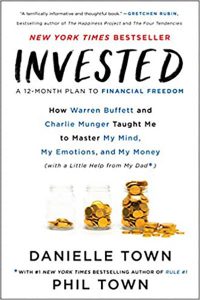
I started applying those tools and equations, and long story short, I started beating the stock markets. I’m like, “We’re onto something.” He states that if you are a retail investor like anybody or like you and me, we should be getting 15% or more in the market. The market average is probably 6% or 8%. I’m like, “Let’s go for 15%.” In my first year in 2016, I made 15%. The next year, 2017, it was 16%. I had some ETFs, which are essentially a bundle of stocks. They could be 100 stocks. I sold those because my confidence went to the roof and I only bought individual stocks.
At that point over the next few years, my average returns were closer to 50%. This brings us to 2019, where I’m like, “Maybe that SaaS idea I was looking for in 2010, several years earlier, I might have an idea that works.” Here we are several years later like, “Maybe you got something here.” I was always trying to think of something that could solve a problem. We’ve all heard of MailChimp, Constant Contact, Salesforce, and Netflix. There are so many subscription platforms, but how do you create something different?
That was when my challenge arrived. I’m like, “Finally, I’ve got something different here.” I went to talk to regular investors as well as some institutions to show them this Excel sheet I put together that I was using for a couple of years. Everybody was like, “When are you going to turn this Excel sheet into a tool to share with others?”
That was the validation or the green light to say, “Yes. Let’s go ahead and make this into software.” It took a year to build and that brings us to 2020 and now it’s 2023. It’s been live for a few years. It’s a software as a service and any retail investor can use it. As of January 2023, we’ve got about 7,000 customers in 50 countries.
You have a very strong entrepreneurial background. You seem to have an incredible background with various knowledge, which is unique. I haven’t come across that diversity as much as you. Do you actively invest in real estate or not at all?
No real estate. The stock market is where I make my investments. I could talk about the pros and cons of real estate versus the stock market if you wanted to go there.
I would like to know the benefits of how your method and business are thriving right now during the economy we’re in. When did your business launch? Was it prior to the pandemic?
That was the summer of 2020, so that’d be a couple of months before the pandemic.
You’ve had incredible growth.
It’s not so much the stock market itself that’s driving this, it’s people’s curiosity about getting into the stock market. It’s people all over the globe and not just here in the States. For example, a fast-growing part of the world for Tykr is South Asia, so that’s India, Philippines, Indonesia, and Singapore. These people are very financially savvy compared to a lot of other places in the world. They don’t want to work their entire lives. They want money working for them, which is exciting to hear.
They’re flooding the market and getting on brokers because brokers like Robinhood are now free. You can get on and trade stocks for free. We are jumping right in between the consumer and the broker and saying, “You want to use us before you make a buying or selling decision because there’s a lot of noise out there to buy stocks,” and to be honest with you, they’re pretty bad recommendations. We help people find what’s good and avoid what’s bad.
Do you have a lot of investors that also do this that complements them well together as an additional income stream?
Investing in the stock market, it’s a situation where you’re not producing residual or ongoing revenue. It’s building your wealth, but you want to keep your money in your broker. For clarity here, we’re not a broker. You don’t buy and sell stocks on our platform. You got to go through red tape rules and regulations for every country and we wanted no regulation.
We want people to use our tools as education and screening to find great stocks. People should be building their wealth until they hit the point in life where they’re like, “I’m near financial freedom. I’m pretty close to or near retirement and now I can start pulling money out of my account to enjoy hobbies, travel, and live off of, but until then, you want to use compound interest to let it keep building.
People should build their wealth until they hit the point where they're near financial freedom. Click To TweetTell me a little bit more about the software and how that works. Share the nuggets.
When I first created it, it was based on this algorithm that I can’t say I completely wrote because I used Phil Town as inspiration as well as Warren Buffett, and added my own flair to create a point system. It’s 100 points, the higher the points, the safer the stock. It’s pretty simple. There are a lot of screeners out there that have so many different ratings, numbers, and letters and you have no idea how to make a decision. It’s nearly impossible.
Our system makes it super easy. It’s free for everybody to join and get a fourteen-day free trial. After that, you can add your credit card and it’s $29 a month, depending where you’re at in the world. We call it the Netflix index. If you’re in India or Indonesia, it adjusts the price like Netflix does. It’s not going to be $29. It’ll be a lot less.
When you join, we give you an email every day over the course of a month. It gives you tips like, “How to invest your $1,000? How to buy your first stock? When to buy? When to sell? How to reduce risk?” stuff like that. It’s simple stuff. We pepper your email box with these tips to get you warmed up and improve your confidence with investing. If you don’t want to wait for all these emails, you can read them on our free front-facing site is Tykr.com.
For our readers, we are going to have the free giveaway that Sean mentioned and you can get that at UndergroundWealthSecrets.net/Tepper and that will go to the free fourteen-day trial.
People get in. When you first joined Tykr, the objective is not to make money. We want to take a step back and say the first step is like jumping into a swimming pool when you’re first learning to swim. Let’s say you’re jumping into the deep end and we’ve all been there. It’s ten feet deep and you’re like, “Am I going to survive?”
I feel like that most days. I’m like, “Am I going to survive this?”
It’s essentially that. When you jumped into that pool once then you’re like, “This is not so bad. I can do this again.” We want to get you warmed up to buy that first stock with confidence. Thereafter, you become more confident in managing your own investments. It becomes pretty easy by using a tool like ours.
What was maybe one of your biggest learning curves through this process with this software that you acknowledge or that stuck out above and beyond like other similar platforms?
When I first launched it, it was ugly. I remember we would call it an MVP, a Minimum Viable Product. All I wanted is to get something out there to validate the market. It was just the algorithm in rating the stocks, but what we learned is that our audience wants more features and tools to not only use the platform more but also increase confidence. We added a lot more data such as earnings and dividends. We added a portfolio tracker so people can track their portfolios and a watch list feature when things change like your score or something changes on your watch list, you’re notified, and stuff like that.
It’s like live-time analytics.
We update the data every day. You’re not going to miss something. The tools should be working for you so you can go travel or enjoy your hobbies. You’re going to get these notifications when something changes. If your stock is starting to nose dive, “I can sell it before I take a loss.” It’s a lot of stuff like that we learned as we went. The keyword that we arrived at is confidence. Everything rolls up to that. It’s all about that.
It’s not about making money, building wealth, or retiring early or this FIRE movement, Financial Independence, Retire Early which is hot these days. People in our community don’t care about that. It’s all rolling up to confidence. They want to do this on their own. They don’t want to pay somebody else. They want to know what they’re doing every day. That’s what matters most.
A lot of people, especially now in our economy, want more control over their financial background and their finances more than ever. I’ve never invested in stocks, to be honest. I am an investor. I do buy homes and invest locally. I’m your guinea pig that never invested. What would you recommend for somebody like me who doesn’t have the background, experience, and knowledge that you would have getting started? What would be a good starting ground for somebody new?
I have to be self-promoting in this case, but I’d say go to Tykr. Once you join, the emails are going to start hitting your inbox and getting you educated because that’s the key. Step 1) Join Tykr. You can get up to speed here in 1 week or 2. Some customers have said less than that, maybe 30 days or less. After that, you should be signing up with a broker. In most places in the world, you can find a free or low-priced broker. Here in the states, fortunately, we’ve got TD Ameritrade, which is what I use. You also have Robinhood and E-Trade. Step 2) Get that broker signed up. Step 3) Buy your first stock.
Is there a range you recommend for somebody starting out, that’s brand new, or getting started regardless of background?
$1,000 or less to get started which a lot of stocks are going to be. You can find stocks for $40 or $50. Some might be a few hundred, but you can buy at least 1, 2, or maybe 3 stocks. No problem. That’s it. Once you do it once, then it’s the discipline thereafter of every month you should be investing. We run into investors and be like, “I want to put in $25 in January, and then maybe in July I’ll put another $25.” You’re not going to build wealth that way.
You got to treat it like your rent, mortgage, cell phone bill, or energy bill. You got to be putting money every month. Treat it like a mandatory payment. You’re a real estate investor and you got people paying you rent every month. You want to be putting money in because it’s building that compound interest over time.
You’ve mentioned Warren Buffett and a few names. Is there anybody in particular that has played an impact or influenced your life to where you’re at now and with this business?
I have to give a lot of credit to Phil Town. His name isn’t as big as Warren Buffett and Charlie Munger, but he’s a great guy and his books were a big help. He’s all about the retail investor. I try to read a lot of books and follow CEOs and how they build businesses, but I tend to gravitate towards people who can share stories of humility, mistakes they made, and lessons learned because that’s where we all learn the most as we build our businesses.

That is true. I remember every learning moment like it was yesterday. I’m like, “I remember those days. I remember one this past year, 2022.” For our readers, Sean has offered our viewers a discount. You can get more information at UndergroundWealthSecrets.net/TYKR and then you can use the code SAVE30 at checkout if you’re interested in reviewing this platform and getting started. Sean, before we close out, what is one of your biggest victories since starting this company that you could share? Is there any one client or situation that has happened since you started this company that you could share with our readers?
I’ve got a lot of fun stories and it’s the comments from customers. We’re big on listening to the customers in how to make the tool better. They’re always fun little stories. One of the most recent ones was a father who got into investing in his 40s or 50s and his kid is graduating high school. He is one of these kids at that age that plays a lot of video games and doesn’t care at all.
The father introduced his son to Tykr and now he’s put down the video games and is all about investing in stocks. This father is so proud that his eighteen-year-old is now planning his financial future over the next 5 years to 10 years. I was joking with this guy, I’m like, “If I would’ve known what I know now at eighteen, my life would be totally different.
I’m thinking of my son. He just turned eighteen a few two weeks ago.
Get educated first before you start buying your first stock or stocks. Click To TweetIt was quite inspirational.
That’s incredible. I want to thank you again, Sean, for being on the show. Again, for our readers, for the free giveaway with the fourteen-day trial, you can go to UndergroundWealthSecrets.net/Tepper. If you’re interested in checking out the software that we’ve been discussing, you can go to UndergroundWealthSecrets.net/TYKR and use the code SAVE30 when you check out. Before closing, do you have any final words that you’d like to share with our viewers?
I encourage you to get educated first before you start buying your first stock or stocks.
Thank you so much. It’s been such a pleasure having you.
Thanks for the time.
Important Links
- UndergroundWealthSecrets.net/TYKR
- UndergroundWealthSecrets.net/Tepper
- UndergroundWealthSecrets.net/freecourse
- UndergroundWealthSecrets.net/facebookpage
- UndergroundWealthSecrets.net/TikTok
- UndergroundWealthSecrets.net/Youtube
About Sean Tepper
 I created a software that allows investors to earn between 15% and 50% consistently in the stock market. Whereas the average financial advisor will return 6%.
I created a software that allows investors to earn between 15% and 50% consistently in the stock market. Whereas the average financial advisor will return 6%.
I’m the Founder & CEO of TYKR,a platform that gives beginner as well as advanced investors the power to manage your own investments and BEAT THE MARKET! TYKR has proven to generate consistent returns between 15% and 50% per year (compared to the average return of 6%). It took 5 years to build TYKR and in the summer of 2019 I achieved what you would call the “aha” moment. I back tested TYKR through the 2008 recession and here are those surprising results :
- In 2008, the S&P 500 went down 38%. TYKR was up 24%.
- In 2009, the S&P 500 went up by 23%. TYKR was up 72%.
- In 2010, the S&P 500 went up by 12%. TYKR was up 96%.

